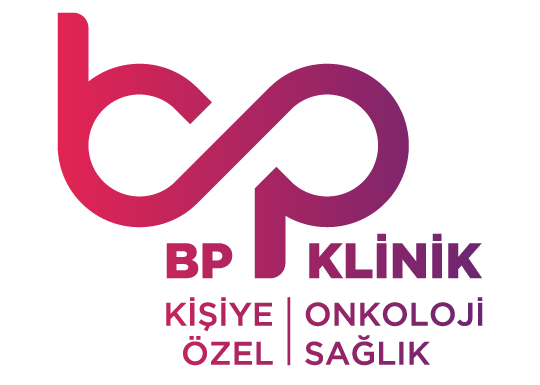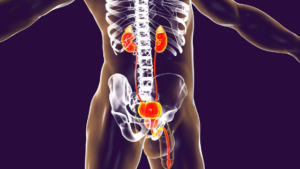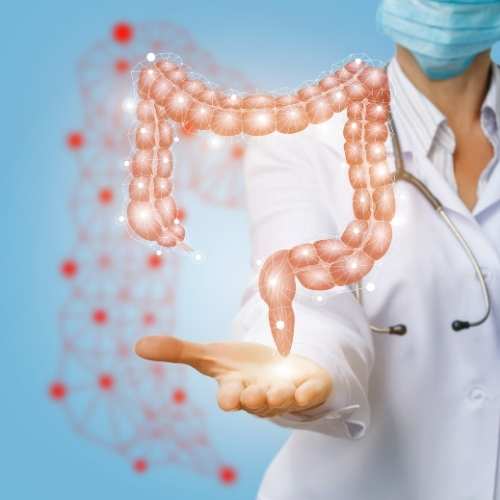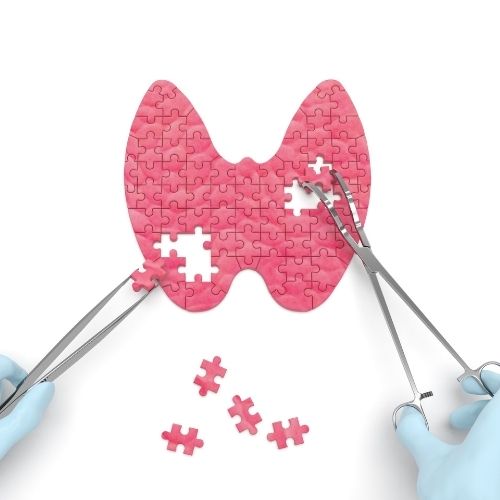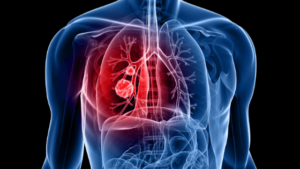What is Kidney Cancer?
What is Kidney Cancer?
There are two kidneys in our body, one on the right and one on the left. Protected by the lower part of the rib cage, the kidneys rest against the posterior abdominal wall. Above the kidneys are the adrenal glands. Both the kidney and the adrenal gland are surrounded by a thin fibrous membrane structure. Kidneys have a very important task in our body, such as filtering waste materials. Apart from this, the secretion of the hormone called renin, regulation of blood pressure and fluid balance, and the production of the hormone erythropoietin, which provides the production of red blood cells, are among the duties of the kidneys.
Benign and malignant tumors can be seen in the kidneys. Cyst formation, on the other hand, is a condition that is generally seen in the kidney, but not considered as cancer. The cysts that are not life-threatening, is only monitored and usually they do not need any treatment. This type of cancer, which is more common in men, can be cured with early diagnosis and the right treatment methods, as in many types of cancer.
Symptoms of kidney cancer include hematuria, blood in the urine, low back pain, swelling in the waist, loss of appetite, weakness, and unexplained weight loss.
Causes of kidney cancer: Smoking is a factor in many diseases. It also poses a risk for renal (kidney)-cell carcinoma. Increasing the cigarette consumption will increase the risk of cancer in direct proportion. Kidney cancer usually occurs in older individuals. It is especially more common in male patients over 60 years of age. In overweight individuals, cholesterol metabolism and certain changes in the immune system increase the risk. Doing sports, which is a factor that reduces the risk of cancer, prevents weight gain and keeps the body functions in balance. It is thought that the medications taken to lower the high blood pressure increase the risk of cancer. However, it is not known exactly whether the changes that occur as a result of high blood pressure or the medications taken pose a risk. Apart from this, it is thought that the functional weaknesses due to chronic kidney diseases increase the risk of cancer. People who have had an organ transplant, have considerably high risk of cancer.
It is especially increased in kidney transplantation. These individuals need to pay more attention to their health and should have medical checkups regularly. It is believed that the environmental factors such as certain chemicals increase the risk of cancer. In addition, the genetic factors are also an important regarding the risk of cancer.
What are the types of renal cell carcinoma? Renal cell carcinoma is the most common type of the kidney cancers. In this type, one tumor usually develops in the kidney, but sometimes two or more tumors can be found. There are many subtypes of carcinoma and identification of the types will be helpful to determine the treatment. In clear cell carcinoma, the cells stand out as very pale or clear. This type, which is generally seen invading the veins, metastasizes to the lung, liver and soft tissue most frequently. In papillary renal cell carcinoma, there is a single or multiple layers of cells around the fibrovascular nucleus to form the papillary structure. It generally follows a positive course and is detected at an early stage. Chromophobe renal cell carcinoma, collecting duct carcinoma, and multilocular cystic renal cell carcinoma are among the subtypes.
Diagnosis in kidney cancer: The patient’s complaints are listened to and background research is done. After the physical examination, blood and urine tests are requested. The results are examined and the tests such as magnetic resonance (MR), computed tomography (CT), ultrasonography and intravenous urography are also requested to examine the kidney and all the formations around it. In the physical examination, it is tried to determine whether there is an abnormal hardness or mass in the abdomen (abdominal) region. Then, in the tests requested, the general health status of the individual that is suspected of being sick is examined. The spread of the cancer is also under control. The next step is to make a treatment plan according to the results and analysis.
Blood and Urine Analysis: In these tests, the status of red blood cells is checked with a blood test, and the high number of cells suggests that an excess of erythropoietin hormone is produced by the kidneys. It is also thought that the kidney cancer cells may cause it. In addition, the number of enzymes in the liver and calcium in the blood are also checked. If the calcium level is higher than expected, it may suggest that cancerous cells may have spread to the bones.
In the urinalysis, bacteria, cancer cells or bleeding in the urine are checked. Since most people with kidney cancer have bleeding in the urine, this test is very important and is frequently used for diagnosis.
Stages of kidney cancer: After a patient is diagnosed with kidney cancer, its stage and course of spread should be determined. Accordingly, the appropriate treatment method to be applied is selected. Staging is determined by whether the cancer has spread to the kidneys and other regions of the body. This situation can also be called the concept of measuring the depth and width of the disease. In some cases, the stage of the disease can be determined during the diagnosis. However, as additional imaging techniques such as computed tomography (CT), magnetic resonance (MR), intravenous pyelogram, bone scan, angiography or ultrasound may be needed to be sure. As a result of all these analyzes, individual-specific treatment plans are made, considering the extent of the cancer’s spread.
Knowing the extent of spread of the disease and the degree of aggressiveness in staging is very important in terms of treatment planning. The early stage of the cancer is indicated with the number 0, while the most advanced stage is indicated with the number IV.
Imaging tests: These tests may use magnetic fields, sound waves, x-rays, or radioactive products. These are the tests used to determine whether the suspicious region contains cancerous cells, to determine the mode of spread, to measure the effectiveness of the treatment and to understand whether there is a possibility of recurrence. Unlike many cancers, kidney cancer can usually be diagnosed with imaging tests and without a biopsy, but there are some cases that require a biopsy.
Computed tomography (CT), ultrasound and magnetic resonance (MR) are helpful methods to diagnose the kidney cancer. In addition, chest X-ray and bone scan are the mechanisms used to detect the spread of cancerous cells to different regions of body.
How to treat kidney cancer?
In treatment, surgical methods, radiotherapy, chemotherapy, ablation, smart drugs and immunotherapy methods can be applied according to the patient’s condition.
Kidney cancer surgery
When no cancerous cells are found outside of the kidney, the treatment can be performed by removing the entire kidney or the cancerous part of the kidney by operation. However, if the cancer has spread to different regions, the surgical method is not a complete solution, but it can reduce the symptoms that occur in the patient. In partial nephrectomy, the cancerous region is removed. In radical nephrectomy, the entire kidney is removed.
Chemotherapy
It is the administration of drugs to the body to kill cancerous cells. Oral or intravenous injection is used. These given drugs travel throughout the body through the circulation and are effective in the treatment of tumors that have spread throughout the body. However, chemotherapy usually shows resistance in kidney cancer cells. There are few chemotherapy drugs that are good for kidney cancer patients.
Radiotherapy
It aims to destroy cancerous cells by sending high radiation energy. It can be applied externally as radiotherapy. Radiation is sent to the region where the kidney is located. Kidney cancer is not very sensitive to radiation generally. For this reason, it is a method that can be applied to prevent the rapid course of cancer, to control metastases or to keep pain at minimal level.
Targeted therapies – smart drugs
These treatments are administered with anticancer drugs. Some targeted therapies block the growth signal from reaching cancerous cells. Others reduce the nutrition of cancerous cells through the blood. There are also treatments that strengthen the immune system. In this way, the spread of cancer slows down and the defense system becomes stronger and fights cancerous cells more effectively. Smart drugs can be used with other treatment methods.
Immunotherapy in kidney cancer treatment
The aim of immunotherapy is to fight and to kill the cancer cells by making the immune system stronger, which is the defense mechanism of the body. The drugs used in immunotherapy in kidney cancer are cytokines and new generation immunotherapy drugs. Today, extensive studies are carried out on immunotherapy. New generation immunotherapy drugs not only improve the life quality of patients with advanced kidney cancer, but also significantly extend the lifespan. The general working system of these drugs is on the easier recognition and destruction of cancerous cells. Common side effects can be listed as fatigue, nausea, difficulty in breathing, diarrhea and constipation. Cytokines are a group of proteins that allow cells to communicate with each other. The cytokines used in kidney cancer are generally interleukin-2 (IL-2) and interferon alpha. Both can contribute to some tumor shrinkage.
Hyperthermia – Heat treatment in kidney cancer
Hyperthermia, also called thermotherapy or heat therapy, is a treatment applied using high heat. At this point, the body is exposed to a temperature of approximately 39-44 °C. It is a complementary cancer treatment method. In this method, it has been seen that it causes minimal damage to normal tissues and kills or causes great damage to cancerous cells. Heat therapy can contribute to the shrinkage of the mass by destroying the cancerous cells and damaging the proteins in the cells. There are several studies on the application of this treatment method.

